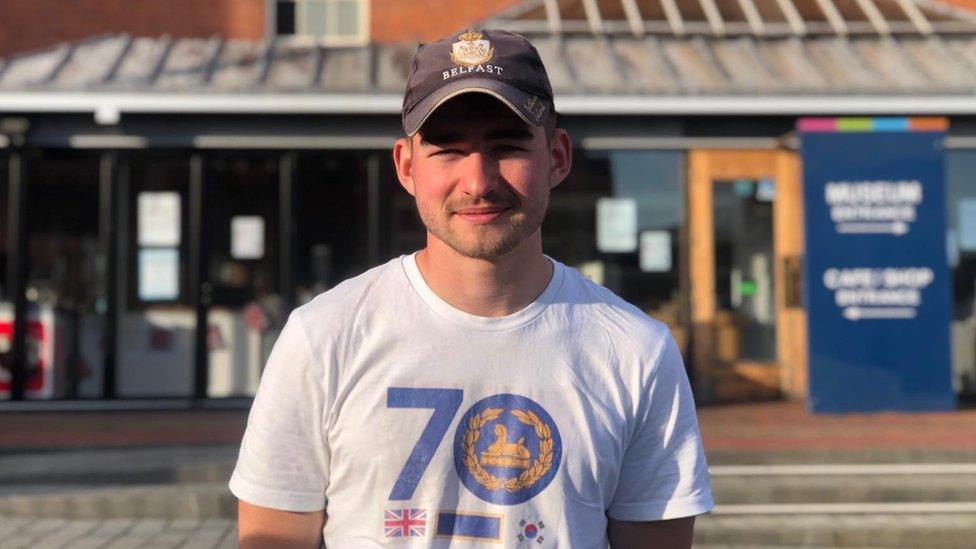Gloucestershire detectives identify WWI soldiers
- Published
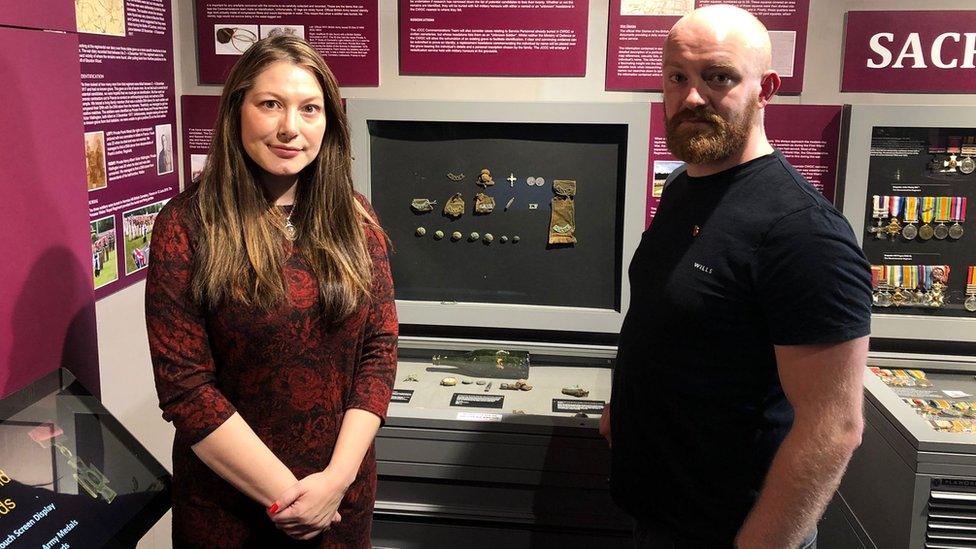
Ms Nash said: "The soldiers were found with their personal artefacts"
A team of people have helped to identify nine WWI soldiers using DNA from their living relatives.
The war detective's research has led to the soldiers reburial with full military honours in Belgium, more than a century after their deaths.
One of the soldiers - Private Arnold Sanderson, has family now living in Gloucestershire.
Relative Jason Kane said it was "incredibly humbling" to find out a family member had fought in the war.
The remains of the nine soldiers were unearthed during road works in a Belgium village near Ypres in 2018.
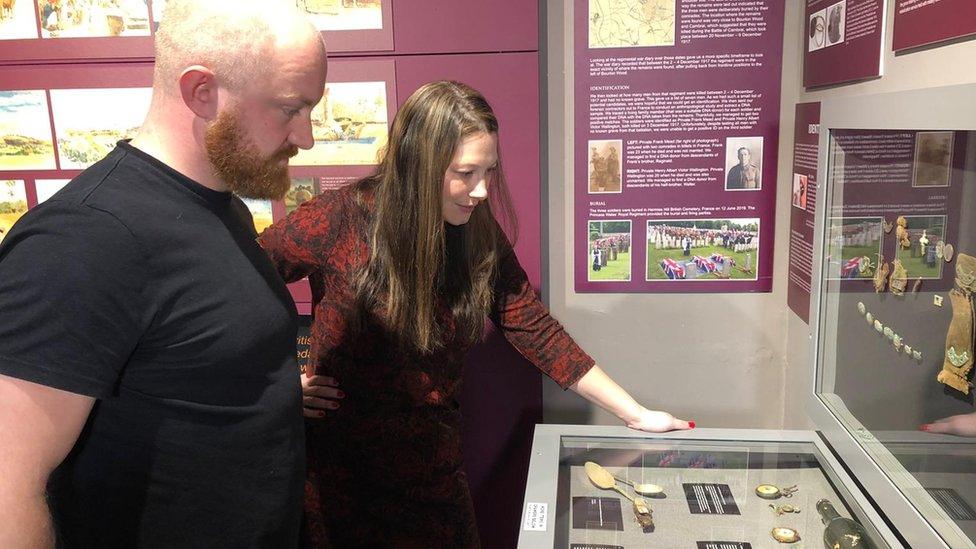
Mr Kane (left) said his grandma had given a DNA sample as part of the investigation
Mr Kane said: "My nana was contacted to provide a DNA sample of the back of the investigations that the war detectives had done.
"It came back as a match for her and the news filtered down the family that they'd found my three times great uncle, Arnold Sanderson."
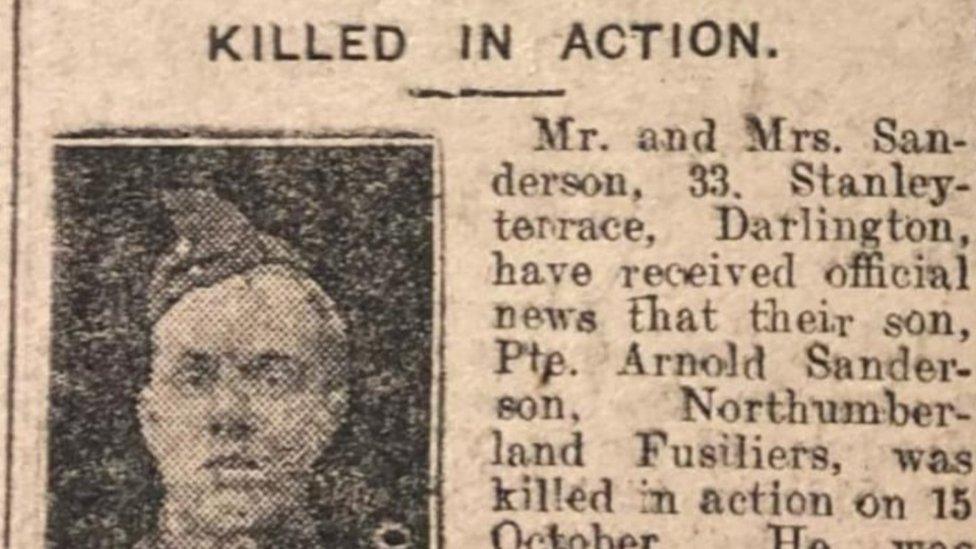
The Northern Echo wrote an article about the soldier, who was from Darlington, after he was killed in action
26-year-old Private Arnold Sanderson, had fought and died in the Battle of Passchendaele.
"To know that a member of your family gave his life for us to live as we do now is incredibly humbling," he added.
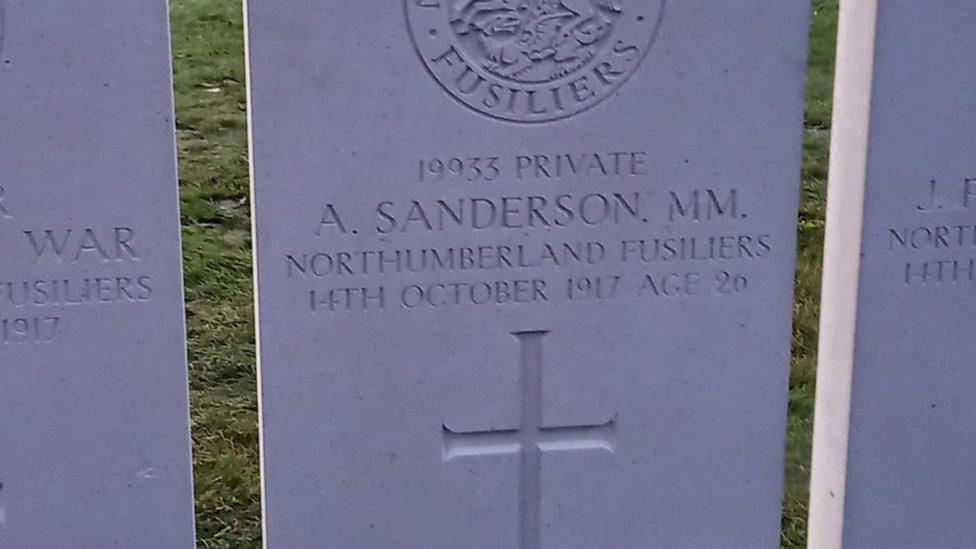
Private Sanderson was 26-years-old when he died in the war
Ministry of Defence war detective Nicola Nash said the soldiers remains were found in a trench system.
"The first world war is such a huge collective part of our cultural make up," she said.
"The sheer loss of men that happened during that war means almost every family living today has a relative who fell during that war".
Private Sanderson and the eight other WWI soldiers have been reburied at a service in Belgium in front of their living relatives.

Follow BBC West on Facebook, external, Twitter, external and Instagram, external. Send your story ideas to: bristol@bbc.co.uk , external
Related topics
- Published26 March 2021
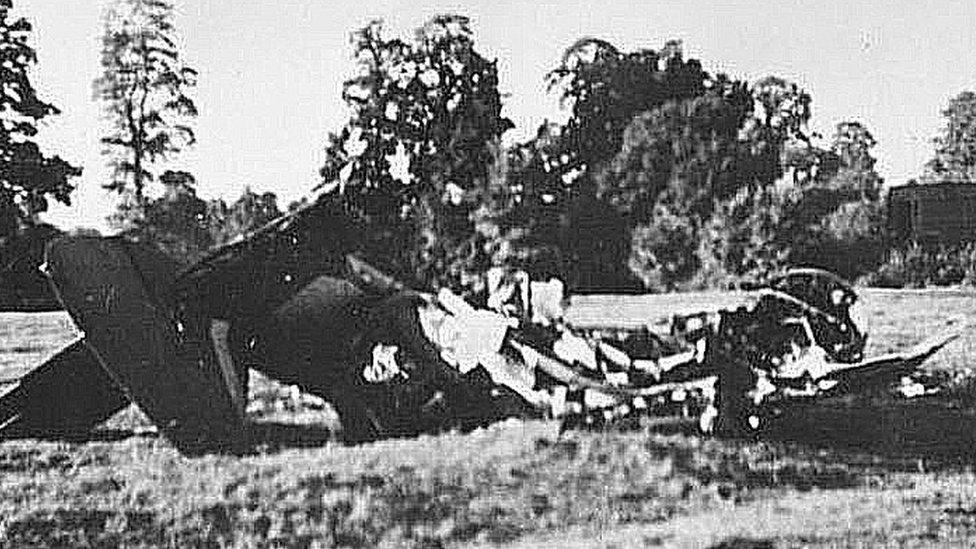
- Published27 April 2021
